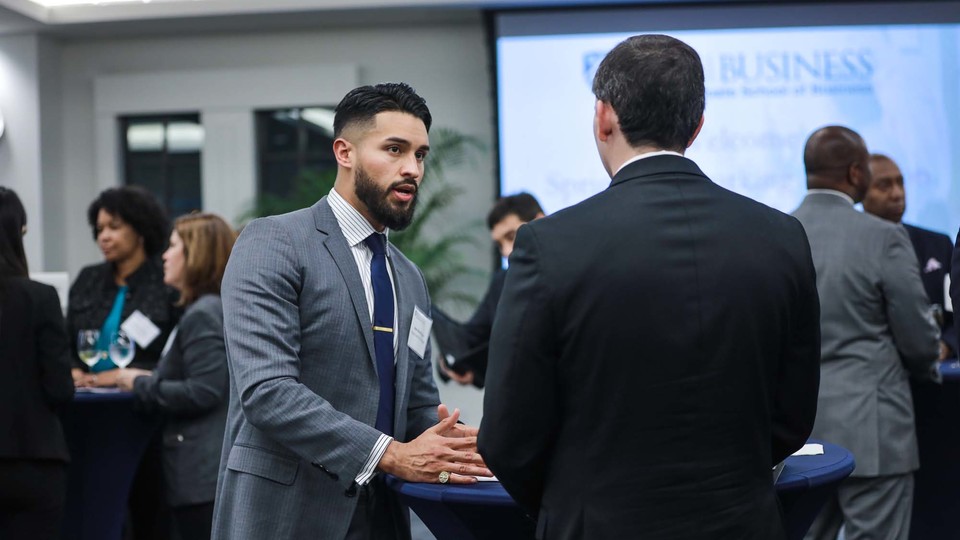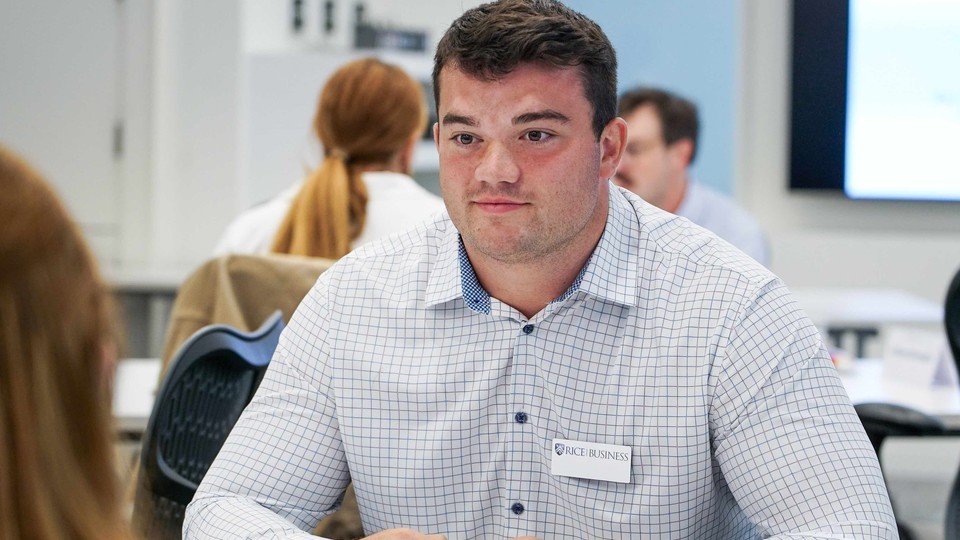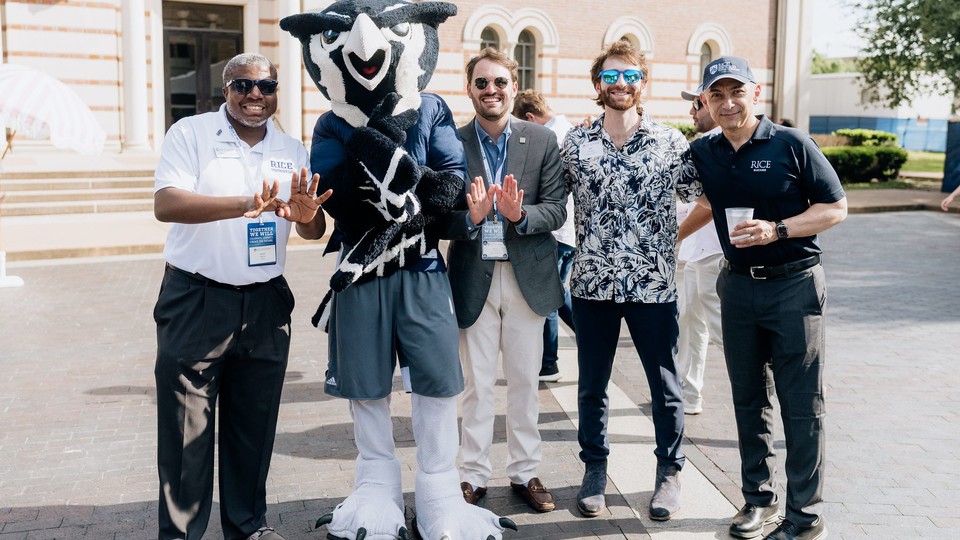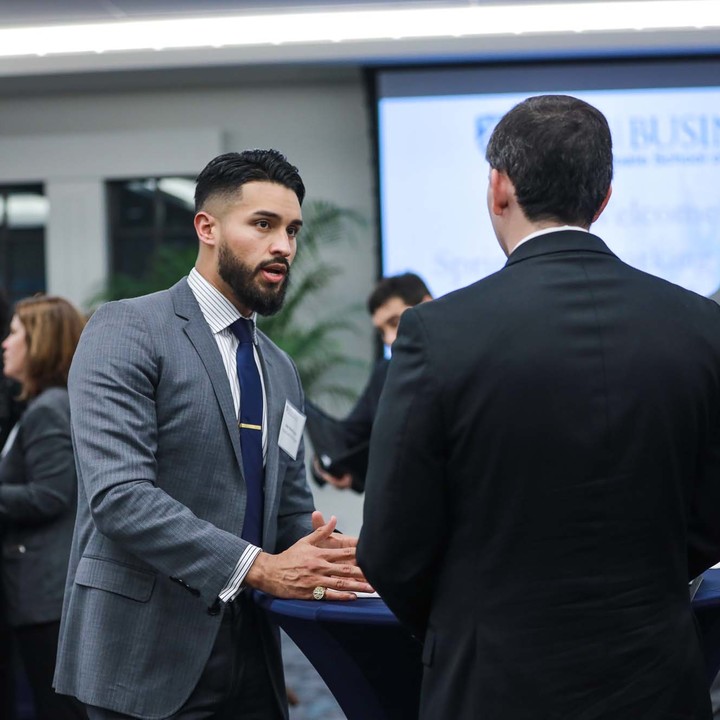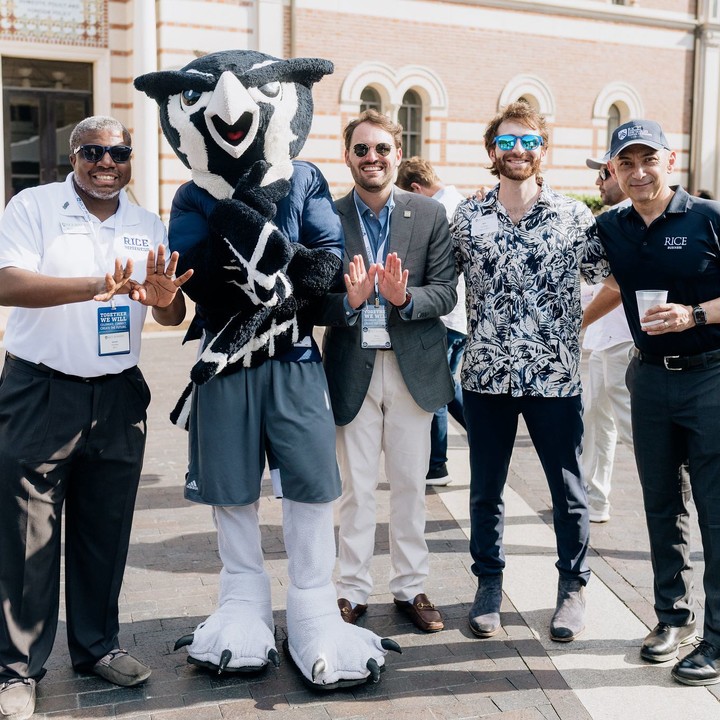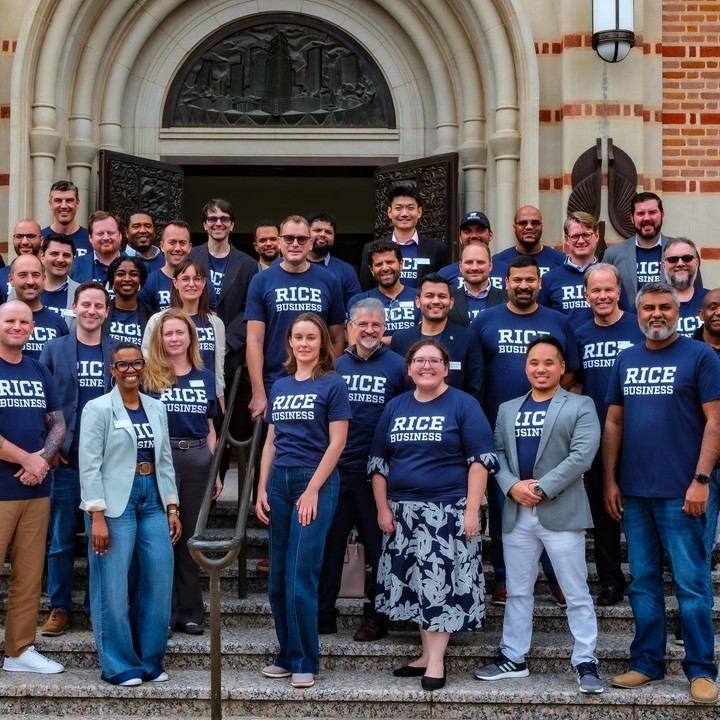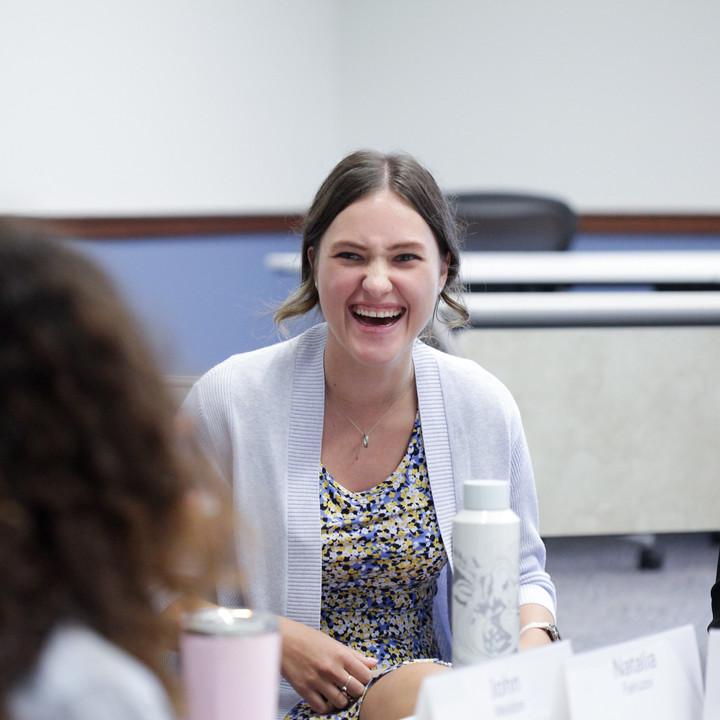Rice students bring an average of five years of experience to the Full-Time MBA program. From stronger cohorts to high-powered networking, here’s why work experience is important for top business programs in the U.S.
-
Admissions
Working on your MBA application? Here’s why you should connect with a student ambassador before hitting submit.
23 Jan -
Student Life
Discover how Rice Business MBA students are supported through personalized academics, career coaching, community culture and deep connections in Houston.
16 Jan
Filter
Rice students bring an average of five years of experience to the Full-Time MBA program. From stronger cohorts to high-powered networking, here’s why work experience is important for top business programs in the U.S.
Working on your MBA application? Here’s why you should connect with a student ambassador before hitting submit.
Discover how Rice Business MBA students are supported through personalized academics, career coaching, community culture and deep connections in Houston.
Wondering why Rice Business is a top MBA for healthcare professionals? Between access to the world’s largest medical center and a robust healthcare curriculum, Rice delivers an MBA experience that’s immersive, entrepreneurial and globally relevant.
Houston is where top industries like energy, tech and healthcare go hand-in-hand with a top-ranked Executive MBA. This is why our EMBAs chose Rice Business.
Ready to prepare for your Rice MBA interview and essays? It’s time to practice, review and research so you can tell your best story and get into a top MBA program.
Discover why Rice MBA programs attract ambitious professionals seeking career growth, leadership development and long-term ROI.
In our inaugural Industry Weeks Series, Rice MBA students got an in-depth look at four major sectors — energy, healthcare, tech and real estate — through fireside chats, career treks and high-level networking.
Rice Business offers a rich variety of courses across its programs, including 100+ electives for Full-Time MBAs, allowing students to dive and excel in topics they’re passionate about. Here are some of our students’ favorite courses.
In honor of the season of thanksgiving, we turned to our Rice MBA students to share what they’re most grateful for. From the supportive community to our home in Houston, there’s so much to love about Rice Business.

